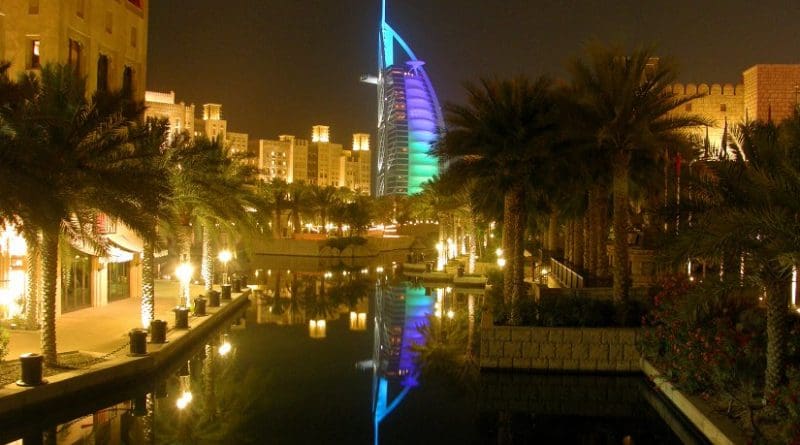How Dubai Rolled The Virus Dice And Won – OpEd
By Arab News
By Frank Kane*
This time last year, if you believed the Western media, the outlook for Dubai was dire.
An “expat exodus” was underway in the emirate, sparked by a pandemic recession that had turned the economy into a “pack of cards” that would collapse at any second under a “mountain of debt,” according to the “experts.”
A year on, that sentiment has turned 180 degrees. Now Dubai is painted as a “pandemic boomtown,” where the “ultrarich” scramble for tables in swanky restaurants and $10 million villas get snapped up by buyers “dressed as somebody going to play basketball,” according to one recent volte-face report.
Even allowing for media hyperbole, the mood has certainly changed. Dubai’s gross domestic product growth is forecast at 3.1 percent this year and 3.4 percent next year. Meanwhile, property market transactions have hit an eight-year high, with values around 25 percent up on the year. Even the long-suffering stock market has come back to life, 30 percent ahead, electrified by a spate of government-backed share listings.
Expo 2020, a cause of concern to the emirate’s strategists ever since its postponement last year, launched amid a global fanfare, and has answered the doubters by attracting big numbers and receiving all-round plaudits.
To some degree, the Dubai turnaround is a reflection of a wider improvement in the regional economic outlook. With oil prices rising most of the year, Dubai benefits from the feelgood factor in neighboring Abu Dhabi and booming Riyadh.
It has also benefited from the decision of the UAE government to push the COVID-19 vaccination program to the limit. Double-jab rates are among the highest in the world, and many Dubai residents are now receiving booster shots shown to be effective against new variants.
Faith in the vaccines in the UAE has proved to be a critical factor in the strategy for post-pandemic recovery. This gave policymakers confidence to announce a raft of measures to liberalize the economy and society, attracting global high flyers from places such as Singapore and Hong Kong, which are struggling with pandemic issues or political problems.
If Dubai took its lead from the policymakers in the capital Abu Dhabi, it also injected its own pizazz into pandemic recovery policy. A key date in this revival was July 7 last year, when the emirate announced it was reopening for tourism after a three-month lockdown that hit its crucial hotels, restaurants and malls business hard.
Dubai’s economy rests on the pillars of the “3Ts” — trade, transport and tourism — and was savaged by the global shutdown. But last summer, even before there was any immediate prospect of a vaccine, the decision was taken that the emirate simply had to reopen, or go under.
This was well ahead of Abu Dhabi, which was far slower to open up again and which maintained restrictions on travel to Dubai until well into 2021. The capital, buoyed by its oil-related financial reserves, could stand the economic pain of shutdown longer than Dubai.
Another key date was Nov. 9, 2020, when the first vaccine was unveiled by Pfizer. Dubai took a calculated gamble: It would accelerate the reopening, allowing tourists and business travelers to return, in the expectation that a fast vaccination rollout would keep the inevitable rise in infection rates within an acceptable level.
It was a brave decision, and success was by no means guaranteed. For a while around this time last year, as infection rates tripled in a couple of weeks and the delta variant made its way into the emirate, the outcome hung in the balance. But it has proved to be a shrewd bit of economic policymaking, as the spectacular recovery this year has shown.
Of course, there is still a threat from the virus, as demonstrated by the omicron variant. Each new travel restriction, such as the ban on flights to and from parts of Africa, and each bump in the global supply chain, are concerns for the emirate.
But there is little chance Dubai will ever go back to anything like the full-scale lockdowns of last year. Having once rolled the dice against COVID-19 — and won — the emirate will continue to trust its luck.
- Frank Kane is an award-winning business journalist based in Dubai. Twitter: @frankkanedubai

